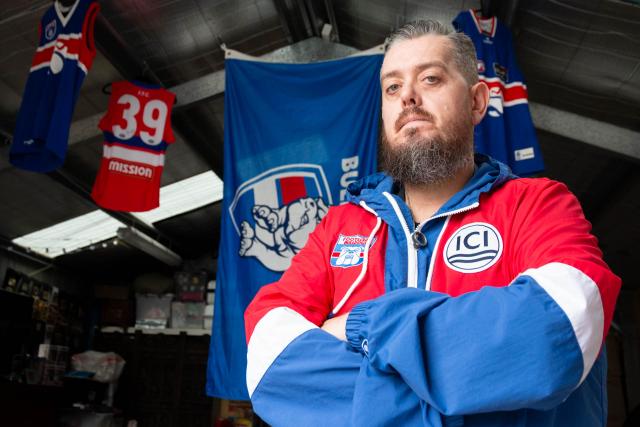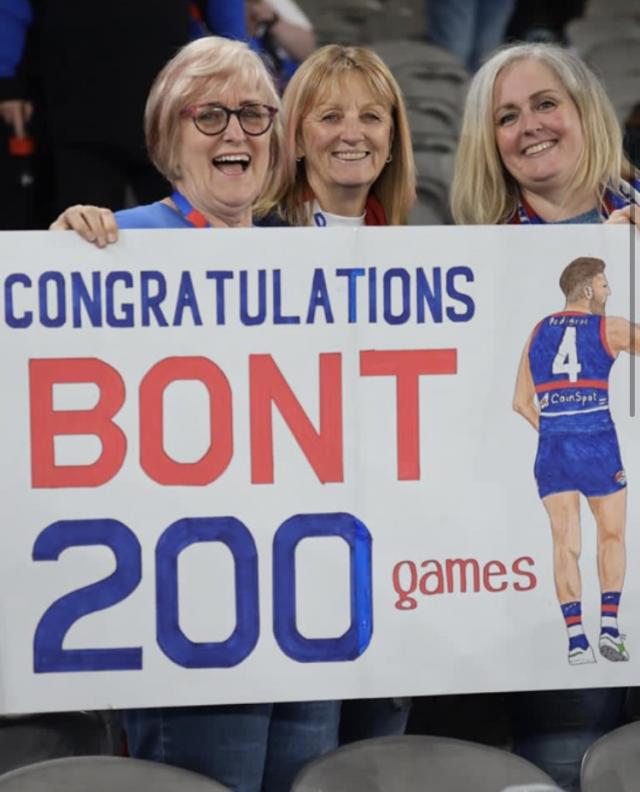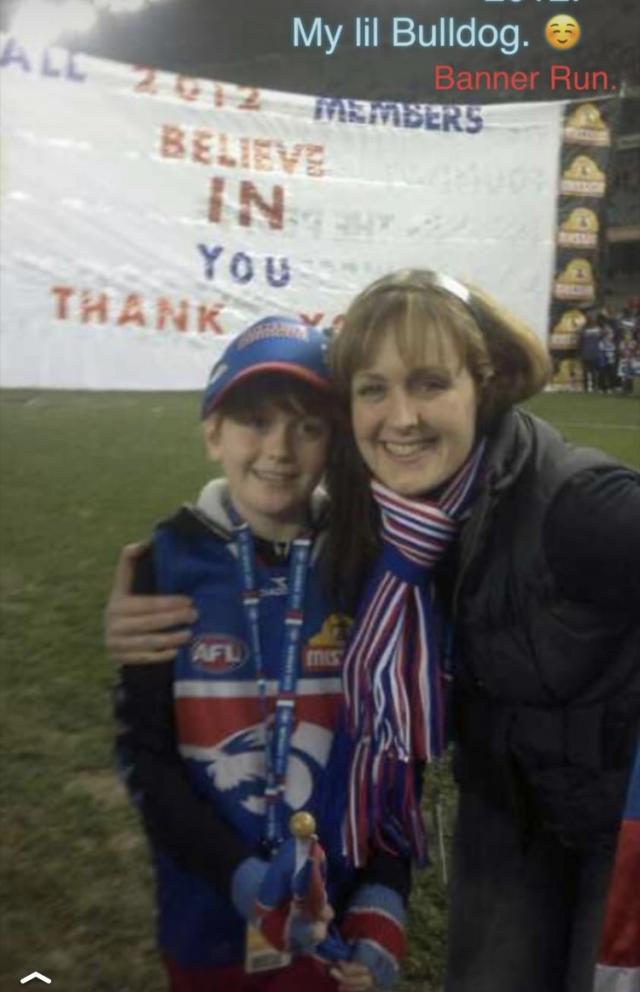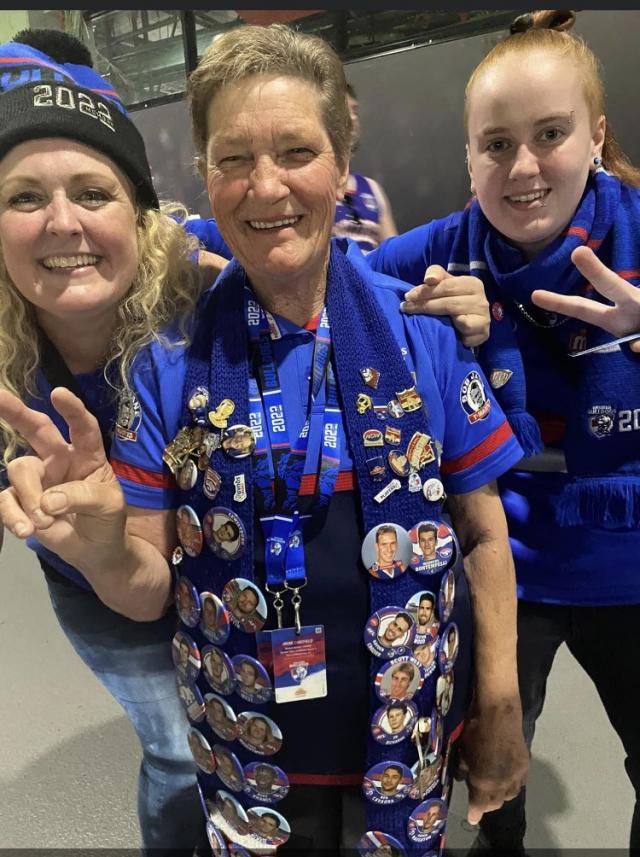
With finals fever spreading throughout Victoria, Zoe Moffatt talks to AFL fans about Marvel Stadium and how its lighting is affecting spectators with sensory sensitivities.
Going to an AFL game is a ritual for many Victorians. Throwing on your team’s guernsey, indulging in some hot chips and sipping on beer is a weekend familiar to hundreds of thousands of fans across the state.
Western Bulldogs supporter Chris Von D is no exception, he loves the game. He lives and breathes red, white and blue, and once he starts talking about his team you can hear the passion bubble out.
However, for supporters like Chris who have epilepsy or other health conditions, the lighting and post goal celebrations at Marvel Stadium are throwing doubt on their future as beloved spectators.
“Football is a really important place for me to go to,” Chris said.
“My whole leg is inked up red, white and blue, bulldogs everywhere over me. So yes, I’m a big Bulldogs supporter.”
For Chris, who is a diagnosed epileptic, going to watch games at Marvel Stadium – which he calls ‘the kennel’ – is a risk, but one he’s willing to take.
“I was diagnosed with epilepsy 10 years ago … medication way I take about seven morning tablets [and I] take another five at night time. At the end of October last year I ended up going in for brain surgery.
“With everything over the years that’s gone on I just find going to a Bulldogs’ game is just my place.
“I can have a bad week and my wife knows this and she will take me to the football because I can just switch off you know, you forget about everything.”
Chris said he has noticed the lighting and noise at the stadium increase, and he now chooses to look away from the lights.
“Over time I’ve noticed that they’ve tinkered with the game day setup. The music went up a bit louder, then they put the Bulldog running on the scoreboard [where] he comes running and charging and stuff.
“Me and my wife were sitting there for a game and as the first goal kicked, they flicked the lights and my wife straight away put her hand over my head.
“I asked what she was doing and she said ‘look, it’s flashing lights. It’s not good. We don’t need you having a seizure here.’
“There’s the Bulldog side of me that’s like ‘I want to watch this’ but I do look away … I put my head down and look at my knees.
“There’s been some times where I’ve been at a game and … I just sort of zone out.”
Chris said he understands that the AFL is trying to make the game more entertaining, but it should not come at the cost of excluding supporters with health conditions like epilepsy, anxiety or autism.
“I just feel they don’t put much thought process into it. I think it’s more of a, do we want to surprise 90 per cent of our supporters [and the] 10 per cent can just close their eyes or look away.
“Football is trying to entertain the supporters I guess, but I don’t go there to see the lights, I go to see my team play.”
Consultant Neurologist at Austin Health Comprehensive Epilepsy Program Dr Saul Mullen said light sensitive epilepsy is relatively uncommon.
“Light sensitivity happens in people who have generalised seizures… and in a practical sense, is really only a minority of those people with generalised epilepsy,” he said.
“People are likely to be provoked by fast flicker… more than eight flashes per second… brightness matters… the size of the flash matters… and very fine patterns matter.”
Dr Mullen said for people with light sensitivity epilepsy, sunshine, reflections and flickers are problems and sunglasses and medication can help.
“We don’t see a lot of people who have seizures at concerts and venues in general… polarised sunglasses make a big difference… [and] medication helps.”
For people with anxiety and on the autism spectrum, Dr Mullen said it is a different set of problems, and bright lights and loud noises can be uncomfortable for people with physical problems.
“People with various levels of autistic spectrum disorder are going to be uncomfortable in various kinds of sensory environments depending on the contact,” he said.
Marvel Stadium, which is set on the banks of the Yarra River in Docklands, is also the home ground for Essendon, Carlton, North Melbourne and St Kilda.
The stadium has a retractable roof, and in 2009 it recorded its largest ever AFL attendance with 54,444 spectators.
Fellow Bulldogs fan Amber Holland describes herself as a long life die-hard supporter, and has three kids on the autism spectrum and with varying levels of anxiety.
Amber said she would like to see more information given to spectators about what they can expect at the game, but said the introduction of a sensory room is a “fantastic initiative”.
“I honestly don’t think it’s unfair to the larger population at football games, to enjoy these sorts of celebrations after a goal or upon entry to the ground,” she said.
“What could possibly be done before a game is to announce or put up a warning on the screen perhaps to allow people that may not be aware of what happens during a game, so they can be better prepared.
“I do also believe that Marvel Stadium does now have a sensory room that people with such issues at loud and noisy events, can escape to.
“I think it is a fantastic initiative by the stadium to be inclusive and also embrace disabilities, [but] … perhaps more awareness of the existing sensory room could be beneficial to some, as it’s not well known about or advertised.”
Marvel Stadium partnered with non-profit KultureCity to make the stadium sensory inclusive with a sensory room and sensory inclusive training for stadium staff.
KultureCity USA director Uma Srivastava said sensory sensitivities can include bright lights, sounds, crowds, smell of concession foods and more.
“It truly depends on the person… [but these aspects] can all be overwhelming and can cause a sensory overload,” Ms Srivastava said.
“One in four of us has a sensory need and we want to make sure that all venues, big and small, are welcoming to everyone, regardless of their ability.”
Sensory bags, noise cancelling headphones, fidget tools, visual cue cards and weighted lap pads are available to guests who feel overwhelmed by the environment.
The AFL said it has not received complaints about lighting at the stadium.
Western Bulldogs were contacted for comment.









